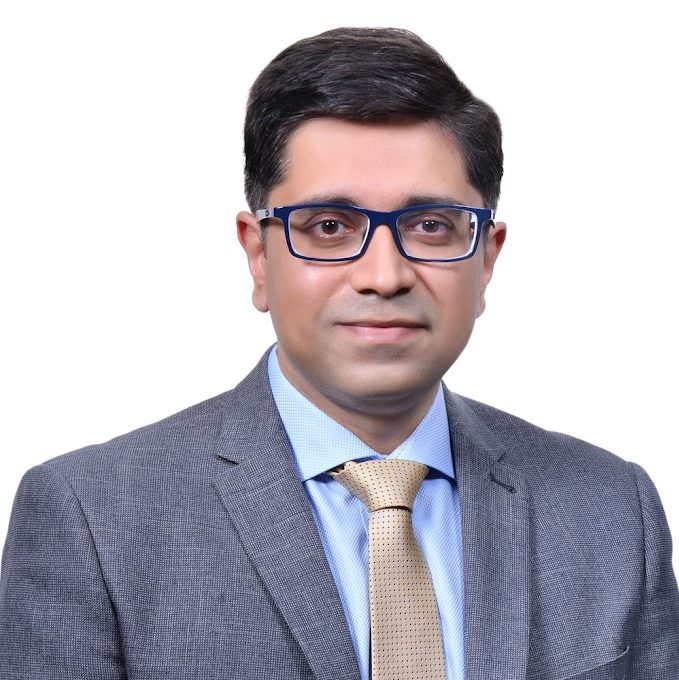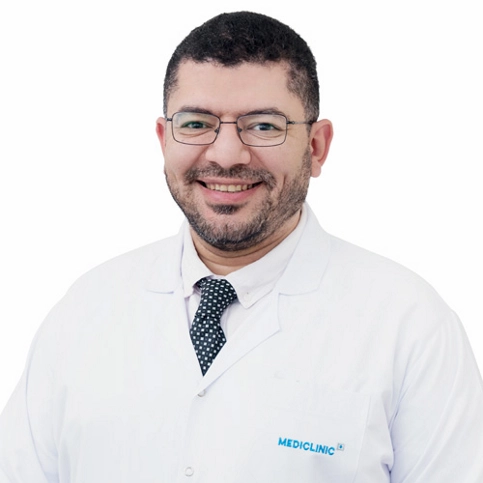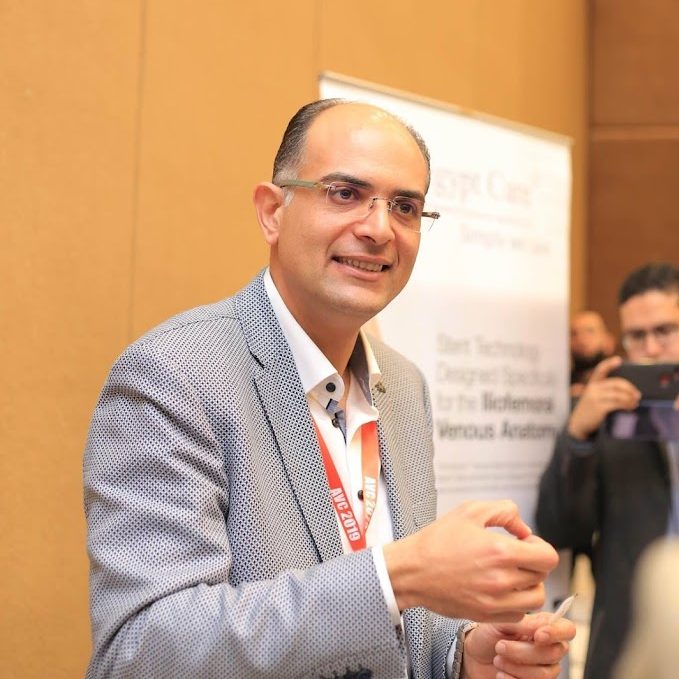
Rajarshi Mitra
NMC Specialty Hospital
Dr. Rajarshi Mitra is a highly-rated Specialist Laparoscopic Surgeon and Proctologist in Abu Dhabi, offering advanced minimally invasive procedures with over 18 years of experience

Abdulrahman Maher
Mediclinic
Dr. Abdul-Rahman Maher is a highly regarded vascular and endovascular surgeon at Mediclinic Airport Road Hospital in Abu Dhabi, specializing in minimally invasive treatments for various vascular conditions.

Ahmed Gaweesh
Advanced Centre for Daycare Surgery
Dr. Ahmed Gaweesh is a Consultant Vascular Surgeon and Senior Lecturer at Alexandria University, renowned for pioneering deep venous imaging and minimally invasive interventions.
The Journey of Vascular Surgery
The blood vessels in our bodies—veins and arteries—are the essential channels through which life flows. Vascular surgeons, with their precision and expertise, are the navigators of this intricate network.
A Challenging Yet Fulfilling Path
The road to becoming a vascular surgeon begins in medical school, where years of study form the foundation. As the journey progresses through rigorous training and hands-on residencies, the skills required to perform in this specialty are sharpened, shaping the surgeon’s ability to navigate the complexities of vascular procedures.
The Hidden Danger of Aneurysms
Aneurysms are dangerous and often silent, lurking without immediate symptoms. If left untreated, these weakened vessels can rupture, causing life-threatening consequences. Vascular surgeons step in with care, using advanced techniques like stent placement and grafts to secure these fragile structures and prevent catastrophic outcomes.
Peripheral Artery Disease: A Gradual Loss of Mobility
Peripheral Artery Disease (PAD) manifests slowly, reducing mobility over time. The early signs of cramping and numbness can be subtle, but with accurate diagnosis and timely interventions—ranging from lifestyle changes to cutting-edge procedures—surgeons can slow the disease’s progression and help patients regain their quality of life.
Innovative Tools in Modern Surgery
With advancements in technology, vascular surgery has entered a new era. Tools like laser technology, angioplasty, and robotic surgery allow for highly precise procedures. However, even the most sophisticated devices depend on the skill and experience of the surgeon to ensure the best outcomes for patients.
Chronic Venous Insufficiency: Persistent Struggles
Chronic venous insufficiency is a common condition where the veins in the legs fail to properly circulate blood, causing discomfort. As blood pools and veins become strained, patients experience pain and swelling. Treatment options, including compression therapy and vein ablation, aim to alleviate these symptoms and restore normalcy to patients’ lives.
The Urgency of Emergency Situations
Vascular emergencies, such as ruptured aneurysms or blocked arteries, require immediate and decisive action. Surgeons in these critical moments rely on their expertise to assess the situation quickly, providing life-saving interventions that stabilize the patient and repair the damage before it’s too late.
Cultural Sensitivity in Diverse Healthcare Environments
In multicultural cities like Dubai, a surgeon must be sensitive to the diverse cultural backgrounds and beliefs of patients. By respecting and adapting to these differences, vascular surgeons ensure that their medical practice is both compassionate and effective, providing tailored care that respects individual cultural perspectives.
The Human Element in Vascular Care
While vascular surgery is often associated with the physical aspects of healing, the emotional journey of the patient is just as important. Surgeons must develop a connection with patients, offering support, understanding, and reassurance through the fear and uncertainty that often accompanies major medical procedures.
Recovery Beyond the Surgery
The process of healing continues well beyond the operating room. Recovery is a multi-phase journey, including monitoring, rehabilitation, and lifestyle adjustments. Surgeons play a crucial role in guiding patients through this process, ensuring that recovery is as smooth and effective as possible.
Continuous Learning and Improvement
Each case offers an opportunity to learn and improve. Both triumphs and setbacks provide valuable insights that shape future practices. Vascular surgeons must remain committed to lifelong learning, constantly refining techniques and exploring innovative methods to stay at the forefront of their field.
Addressing Diabetic Foot Ulcers
Diabetic foot ulcers are a serious complication of diabetes, requiring careful and continuous management. Vascular surgeons use a combination of treatments, such as wound debridement, bypass surgeries, and hyperbaric oxygen therapy, to help promote healing and prevent further complications.
The Fusion of Art and Medicine
Every surgery combines the technical and the creative. Surgeons must be precise and calculated in their approach, but also rely on their intuition and experience to adapt to the individual needs of each patient. The artistry in vascular surgery is reflected in the delicate, thoughtful execution of every step of the procedure.
Teamwork in Patient Care
Vascular surgery is rarely a solo endeavor. Surgeons frequently collaborate with specialists from other fields—cardiologists, wound care experts, and nephrologists—to ensure comprehensive care. By leading this multidisciplinary team, vascular surgeons ensure that all aspects of a patient’s health are addressed, fostering better outcomes.
The Role of Research in Advancing Care
Research is integral to the advancement of vascular surgery. By participating in clinical trials and exploring innovative techniques, vascular surgeons help pave the way for breakthroughs in treatment and care. This dedication to scientific progress drives the future of the field.
Managing Long-Term Pain
Chronic pain is a common challenge for patients with vascular conditions. Managing this pain requires a combination of traditional medical treatments and alternative therapies. Surgeons work closely with patients to develop personalized plans that address both the physical and emotional aspects of pain management.
Promoting Vascular Health Awareness
Educating the public about vascular health is crucial in preventing the spread of vascular diseases. Public awareness campaigns focusing on the importance of exercise, smoking cessation, and early detection can significantly reduce the risks of serious conditions. Vascular surgeons play a key role in these efforts, extending their impact beyond the clinic.
A Commitment to Healing, Always
Vascular surgeons are driven by a lifelong commitment to healing. Their work is characterized by ongoing professional development, patient-centered care, and an unwavering desire to improve outcomes. This dedication becomes a defining aspect of both their professional careers and personal lives.
Quiet Victories of the Vascular Surgeon
Many of the successes in vascular surgery go unnoticed by the world. The quiet triumphs—the grafts that hold, the lives that are saved—are celebrated in the hearts of those who benefit. The surgeon’s work is often most meaningful when the results are felt in the small, quiet moments of life.
Urologist
Are you interested in learning more about the Urology Department? Urology is a medical specialty that concentrates on diagnosing and treating conditions related to the urinary tract and male reproductive system. It addresses issues like kidney stones, urinary incontinence, prostate disorders, and erectile dysfunction, all of which influence overall urinary and reproductive health. Urologists aim to enhance and preserve the functionality of these critical systems through expert care and intervention.
Urologist